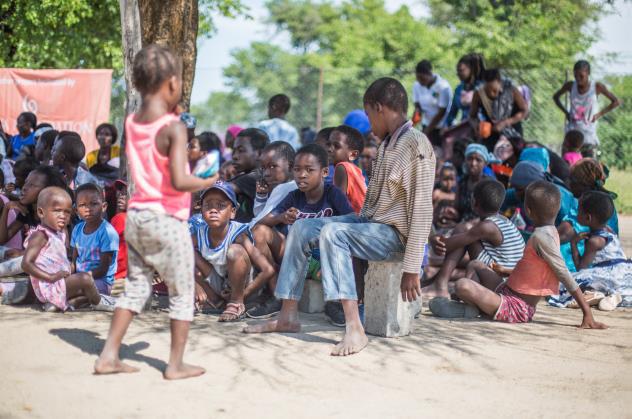Botswana is a land-locked country with a small population of 2.2 million people, making it one of the most sparsely populated countries in the world. A significant portion of the country is the Kalahari Desert.

Botswana Water Access Project
Water Access Project
The stark reality is that if there is no water, there is no life; crops cannot grow, cattle and other livestock cannot survive, and nor can humans.

Project Summary
In 2019 and 2020, Africa Foundation supported by andBeyond and with funding from generous donors, embarked on water projects in these two communities, drilling a borehole in each location, installing fencing to protect the water supply from roaming wildlife and solar panels to power the water pump.
The boreholes aimed to support the approximately 900 people living in these communities, however, through the process of tracking our impact, it has become apparent that while dramatically life changing to some, the two boreholes alone are not able to effectively service the two communities due to their wide geographical spread. There are many villagers who are still suffering under the burden of fetching and carrying water long distances, from the borehole back to their homestead. As a result of these observations, Africa Foundation undertook a feasibility assessment for developing a water network across the area.
It was determined that the drilling of an additional 10 water access points in strategic locations, along with the donation of Hippo Water Rollers to vulnerable households – the elderly and disabled and those the furthest distance from the borehole, would deliver an effective solution to ensure all villagers had reasonable access to water.
Funding Details
Our project plan now includes provision of two forms of borehole:
- Borehole with solar powered pump – 10,000 L tank on stand and energized electric fence with secondary outer fencing to protect children from the electric fencing, and reticulation for livestock water supply
- Manual pump borehole with wooden fencing
Funding Needed:
1 x Solar Powered Borehole system: $30,570
1 x Manual Pump Borehole: $14,346
25 x Hippo Water Rollers: $3,505
Description of the Community
Botswana is a land-locked country with a small population of 2.2 million people, making it one of the most sparsely populated countries in the world. A significant portion of the country is the Kalahari Desert.
Botswana has benefited economically from minerals, cattle and tourism, making it a relatively prosperous African country. Unfortunately, Botswana has suffered from the HIV/AIDS epidemic, with a current 20% prevalence rate.
Botswana faces major drought problems; three quarters of the country’s human and animal populations depend on groundwater, and less than 5% of agriculture in the country is sustained by rainfall.
The Okavango Delta is a UNESCO World Heritage site, and major tourist attraction. Bordering one area of the Delta are two very isolated communities, called Gogomoga and Tsutsubega. These settlements are very small, consisting of between 300-500 people in each village, and as a result, not officially recognized to benefit from Government services and infrastructure. There are no schools or shops, and no power supply. The villages are an hour and half drive from the road, along an informal track, and across a small bridge created from branches and mud. Prospects for employment in the area are non-existent except and access to the park to harvest resources such as fish and grass to support themselves and their families is blocked. Many of the young adults have left in search of work so that the villages consist mostly of elderly people and children – the most vulnerable groups.